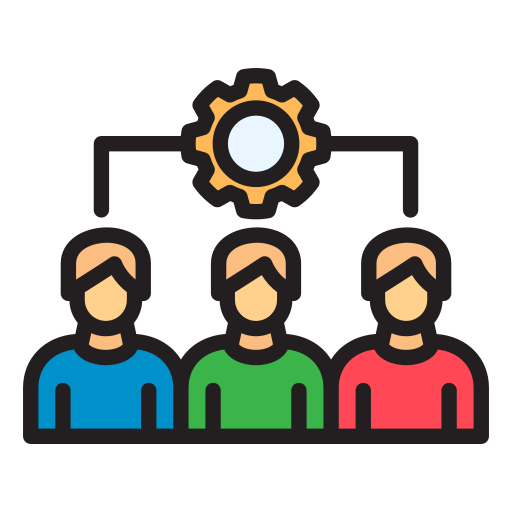Mindful Workplaces

Companies are always looking to capitalize on their investments. Most always want to improve and move forward, and many have been busily adopting a more mindful approach to their employees and customers. Progressive companies understand that people are at the heart of any organization and without taking care of their people (customers, suppliers, employees etc…) they will not get the expected results or be able to achieve their goals and objectives. This is why many progressive companies are teaching their employees to become more Mindful at work by shifting to a culture of awareness.
Mindfulness is becoming quite popular in the corporate world. Human Resources, Wellness Departments and Organizational Development Departments are all creating strategies to capitalize on the benefits of Mindfulness. There are many benefits for sure but there are ways to implement a Mindfulness strategy to maximize your effort. Essentially Mindfulness benefits can be categorized into two themes.
- Wellness (Well-being): Stress Reduction, Resiliency, Balance, Reducing Sick Days, Mental Health etc…
- Leadership and Achievement: Motivation, Engagement, Teamwork, Productivity, Goals, Communication, Innovation, Creativity etc…
For the company to realize the gains promised by Mindfulness, it must adopt a strategy to create a Mindfulness Culture in the workplace. To do that, professional development programs and courses must teach Mindfulness skills at their core and then apply these skills to help improve Well-being, Leadership, Achievement, Teamwork, Engagement, Innovation etc…
Many factors come into play when an organization or company initiates training and development programs and courses, be it Wellness or Leadership related. Companies are increasingly turning to an online or on-demand delivery mechanism. There are many benefits to be had, such as:
- Time Flexibility: Participants can attend the classes when it suits their schedule.
- Location Independence: Participants can attend classes wherever they are.
- Cost Effective: Online courses can be much cheaper to roll out to large groups of participants.
At Optimistic Brain, we spent many years developing our Mindfulness Professional Development Courses and then making them available online. We want to help spread the word about the benefits of Mindfulness and allow professionals to use these skills to claim benefits in the workplace and their personal lives.
Mindfulness Benefits in the Corporate World
Mindfulness is a series of practices that one conducts to improve skills in certain mental areas. Focused attention exercises such as Mindful Breathing Meditations can improve focus and concentration. Insight Meditation practices can help improve self-awareness about how one interprets their experiences. This allows one to bring balance into those interpretations by questioning them for accuracy and exaggeration. Balancing these active beliefs balances our emotional states, and thus our actions become more balanced.
This process of balancing our beliefs or what I call Optimistic Re-framing, allows us to be more effective at self-regulation and self-management. Finally, compassion exercises help increase empathy for our fellow employees, customers, and suppliers. Employees become more in-tune to people’s needs and better able to deliver on them. Compassion also motivates people to believe that change is possible and to take action to make change happen. A perfect skill in times of uncertainty.
There are many benefits when companies and organizations adopt a Mindful Culture. Many scientific studies indicate improvements in many areas. Not only can practicing Mindfulness help increase focus and attention, but it can also help improve creativity, improve communication skills, reduce stress, enhance teamwork and collaboration, and helps motivate people to achieve goals and objectives altogether; these improvements improve customer focus and overall productivity of an organization. Finally, taking a more mindful approach builds compassion with employees and customers making the workplace more balanced. This may sound too good to be true, but these claims are based on real science.
Mindfulness is More than a Class
All these skills require practice. With practice, we can become better. The science is very clear on this. Neuroplasticity tells us that what we focus on and pay attention to changes the structure and function of our brains. So practicing the various Meditation practices is essential if we want to see any improvements. This should not surprise anyone since we know this to be true in the physical fitness world. If one does not exercise, they will not become fitter.
Therefore companies who only teach their employees about the benefits of Mindfulness and review some practices are likely not to see any results unless they also encourage their employees actually to practice. It is essential, especially at the beginning, to make practicing easy and accessible. Hosting regular Meditation sits throughout the day may be one option. These can be done in person or via Skype or Google Hangout. Hosting “Mindful Eating” lunches or coffee breaks is another option. Encouraging employees to “Walk Mindfully” every time they walk away from their desks is another option that takes no extra time. Encouraging employees to do mini-body scans for muscle tension is a wonderful way to help teach them greater body awareness. This will allow them to notice stress in the body, and then they can simply “breath into the tension” to release it.
It’s About the People
All of these tactics are wonderful ways to get employees to practice. With practice, you will see improvements in the various skill levels and THEN the company will see some benefits. Mindfulness is not some quick-fix panacea for getting employees to produce more. It’s a series of practices encouraging observation, self-reflection and a wholesome approach to experiencing life. It helps one to move forward in the direction that one want’s to go in. The company will benefit from this eventually, but it all starts with helping the person first and allowing them to practice developing their skills.
Our 4Steps™ approach will train you to develop many skills that will pay off in the future.
Practicing consistently is the key to mastering new skills.
Blog Categories:
Fundamentals | General | Emotions Explained | Exercises Explained | Personal Relationships | Organizations | Video Blogs | Written Blogs | Latest Blogs
